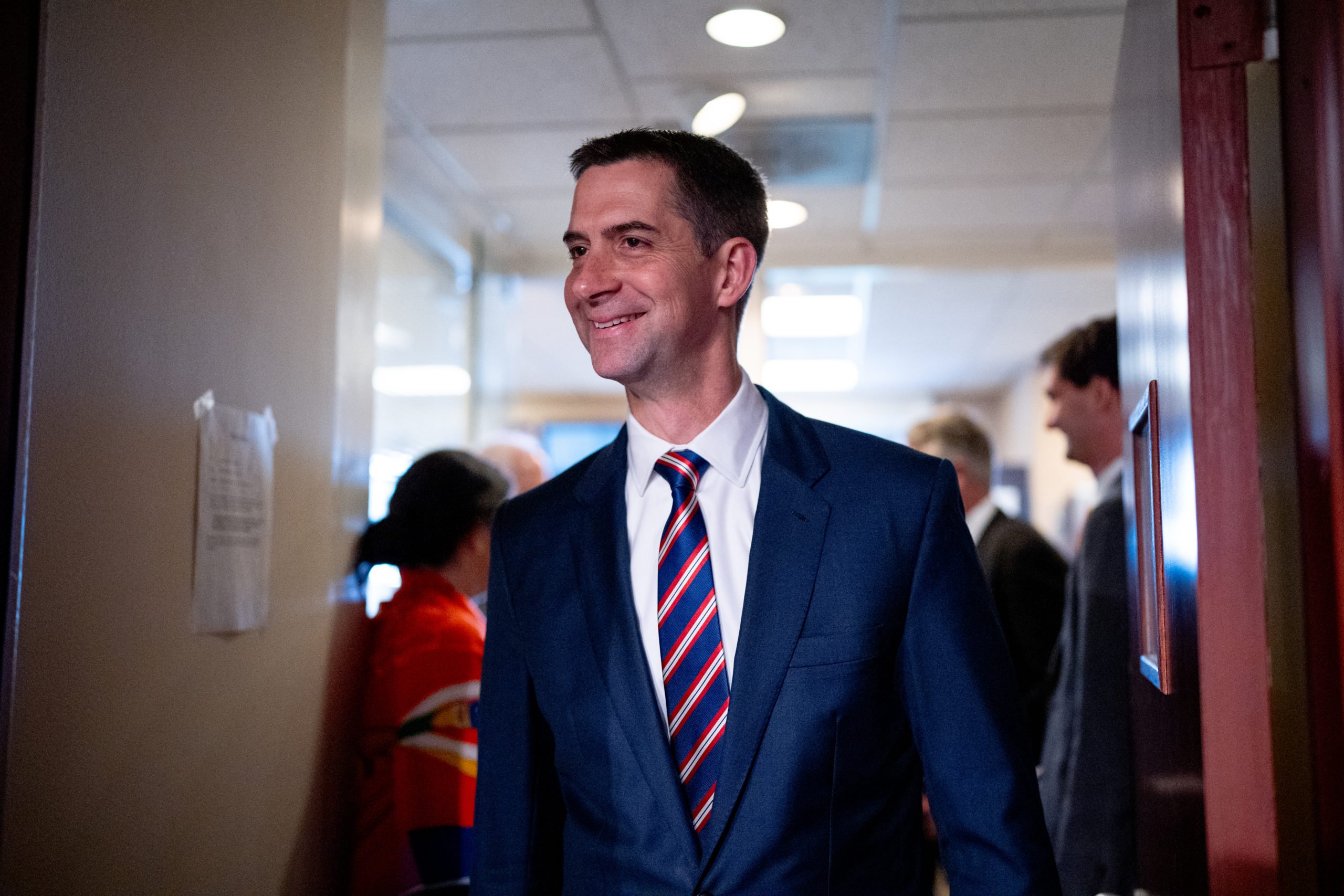Clashes at The Washington Post (WaPo) between publisher Will Lewis and the company’s staff highlight a growing trend of activist-minded reporters butting heads with their business side throughout liberal media — and a stark decline in these outlets’ performances show their current model is simply not working.
Outlets like WaPo, The New York Times and NPR have all experienced high-profile inner conflicts between management and underlings in recent months. These battles underscore a shift in media where reporters see themselves as the vanguard for democracy rather than objective fact-finders, former employees and media analysts told the Daily Caller.
“I think what we’ve seen over the past decade as politics has become more ideological, is that no family, no institution, has been spared the consequences of things becoming more ideological,” Andy Mills, a former New York Times journalist who helped create their popular “The Daily” podcast, told the Caller.
The Post announced Executive Editor Sally Buzbee’s departure in May following a controversy involving Lewis. Lewis reportedly pushed back on Buzbee’s decision to cover an unflattering story about Lewis’ potential ties to a hacking scandal at The Telegraph. A judge was ruling on whether or not to allow Lewis’ name to go on a list of people involved in the incident. Lewis told Buzbee the story wasn’t newsworthy, according to The New York Times. Buzbee reportedly disagreed and the Post ultimately published an article about the judge’s decision to include Lewis on the list.
While widespread coverage of that incident suggests Lewis’ pushback might’ve been a factor in Buzbee’s exit, other reports posit that the company’s new direction, a decision to split the newsroom into three pieces and place Buzbee at the head of one, was the chief factor in her exit.

WASHINGTON, DC – NOVEMBER 15: Executive Editor of the Washington Post Sally Buzbee speaks during the Washington Post Global Women’s Summit at the newspaper’s headquarters on November 15, 2022 in Washington, DC. The inaugural summit featured a collection of speakers ranging from activists to politicians gathered to discuss global issues through the perspectives of women. Anna Moneymaker/Getty Images
Following Buzbee’s departure, Lewis held an all-hands meeting where senior employees openly criticized his decision not to hire a woman or person of color to replace Buzbee, Vanity Fair reported.
“The most cynical interpretation sort of feels like you chose two of your buddies to come in and help run the Post, and we now have four white men running three newsrooms,” one reporter said during the meeting, according to a Vanity Fair source.
This obsession with identity politics within newsrooms is a relatively recent phenomenon, driven in part by the 2016 election of Donald Trump, NBC, CNN and Fox News veteran Steve Krakauer told the Caller. Krakauer is currently the executive producer of the Megyn Kelly show.
“There’s this nonstop focus on identity, the blanket term of coastal elites who are so out of touch,” Krakauer told the Caller. “It’s not necessarily even the youngest of the people there. I think it’s the people who are roughly the ones obsessed with being online.”
“If 80,000 people had voted differently in 2016, there would be a lot of problems that have developed from November 2016 that would not have come to be. I think that was this massive shockwave … Almost no one in these newsrooms in New York and D.C., who theoretically should be people who know what’s coming more than anyone, never saw it coming at all. They had absolutely no idea that Donald Trump had a potential chance of winning,” he continued
Lewis, who brought on veteran newsmen Matthew Murray and Robert Winnett to help replace Buzbee, reportedly slapped his staffers with a harsh reality. (RELATED: WaPo Reporters Run Hit Piece On Their Own Editor Before He Takes Top Job)
“We are losing large amounts of money. Your audience has halved in recent years. People are not reading your stuff. I can’t sugarcoat it anymore,” Lewis told them, according to a Vanity Fair source.
Becket Adams, a columnist and program director of the National Journalism Center (NJC), told the Daily Caller that “journalists, especially the younger ones, are increasingly hyper-ideological. They see themselves as members of a priestly class whose role is to preach the ‘right’ word while suppressing dissenting or even alternative voices.”
“A newspaper needs to make money,” Adams said. “It can’t operate for free unless it wants to be beholden to the state. But how is a newsroom supposed to make money when its workforce, which includes a growing number of 20- and 30-something-year-old neo-puritans, uses the heckler’s veto to obstruct business decisions?”
During Lewis’ struggle session with WaPo staff, he informed them the paper had lost $77 million over the past year.
New York Times’ staffers were on the verge of a mini-rebellion in May after executive editor Joe Kahn made public comments about employees not being ready to do what the paper wanted them to do, which he said was “to commit themselves to the idea of independent journalism.”
“What Joe Kahn told Ben Smith and Semafor is that the newsroom is not a safe space. I think that’s become more of an ethos,” Mills told the Caller.
Kahn, who the Times anointed as executive editor in 2022, further criticized his paper’s coverage of 2020’s summer of protest as “too far.” He told Semafor’s Ben Smith that his role was to walk back from “the excesses” of that period.
He excoriated a young crop of staffers who he viewed as increasingly less objective.
” … I’m open to graduates from whatever school who understand what they need to commit to being in an independent news environment. But I don’t think we can assume that they’ve been trained for that, if they’ve been trained for safe spaces. The newsroom is not a safe space. It’s a space where you’re being exposed to lots of journalism, some of which you are not going to like,” he told Smith.

NEW YORK, NY – MAY 16: People walk past the New York Times headquarters on 8th Avenue on May 16, 2024, in New York City. Gary Hershorn/Getty Images
Times staffers pushed back on that criticism in an open letter to Kahn. “Your staff is not full of activists trying to impose their views on the report. Rather than tribalism or ideology, those who voice concerns do so in the interest of accuracy and fairness — to make The New York Times into the best version of itself,” the letter reads in part.
In February 2023. Kahn had to warn employees against openly criticizing the paper’s coverage on transgender issues.
The business model of bonking readers over the head with activism disguised as reporting wasn’t always a money-losing strategy, Krakauer told the Caller.
“For a brief moment in time, basically 2015 to 2021 … there was real money to be made, by the New York Times or Washington Post or CNN by covering in this way that was like, ‘We are the democracy fighters, saving the Republic from this evil dictator.’ That actually was a decent business model for this moment in time,” Krakauer told the Caller.
That strategy, however, hasn’t been a viable long term blueprint for success.
“I think it was a huge long-term mistake. It was a total focus on short-term gains that were going to backfire in the long-term, which I think is what we’re seeing bare out now. There’s just not that business model,” Krakauer told the Caller. “I talked about my time in CNN, 2010 to 2013, where it was a newsroom that was full of people who generally lean left, but the goal was to be fair. That was completely abandoned during the Trump administration. Now they’re semi-trying to get back to that. But you feel you have this group of journalists who are now beholden to this philosophy, and even beyond young journalists, critics who have completely abandoned the principles that they once sort of stood for.”
While Krakauer pointed to Trump as the main catalyst for the drop in objectivity, he also cited the rise of social media as a major factor and the COVID-19 pandemic as the final nail in the coffin for public trust in the media.
“If we didn’t have the rise of social media, we would not have these younger, lower level journalists acquire the power that they have now,” Krakauer noted. “You once had the audience, they would send you a letter to the news group or email and you got the viewer feedback. That was all private. Now, all the criticism, all the feedback, both positive and negative, frankly, is public. And that works in a couple of different really terrible ways. On one level, it gets these old bosses who don’t really understand social media and what that means … If you’re Pepsi and you get 10 negative tweets, you’ve got to have a 20 person meeting about it. That’s just not, it’s not based in reality. You’ve got this massive amplification problem. It looks like it’s this major political issue. And it’s really not.”
Krakauer also cited the drama that ensued after an op-ed from Republican Arkansas Sen. Tom Cotton that The New York Times published in 2020.

WASHINGTON, DC – MAY 1: Sen. Tom Cotton (R-AR) arrives for a news conference on Capitol Hill on May 1, 2024 in Washington, DC. Republican Senators joined Cotton to denounce pro-Palestinian protests on college campuses and called on school administrations around the country to act against anti-semitism. Andrew Harnik/Getty Images
The publishing of the piece, in which Cotton argued that the President should send in the National Guard to quell protests stemming from the killing of George Floyd, prompted massive backlash within The New York Times. In Krakauer’s book, “(RELATED: NYT’s Decision To Publish Tom Cotton Op-Ed Causes Civil War At The Gray Lady)
“You have these people who — even more so than most of the country, like New York and D.C. types — were just sheltered alone in their little bubbles, and not interacting with real people and spending so much time on Slack and Twitter. And that’s when you have this new idea about what matters in the world,” Krakauer remarked.
The outcry led to the resignation of then-editorial editor James Bennett.
In 2021, Mills and veteran science reporter Donald J. McNeil were out as well.

HOLLYWOOD, CALIFORNIA – DECEMBER 06: Andy Mills attends The New York Times Magazine celebration of The Great Performers Issue at NeueHouse Los Angeles on December 06, 2018 in Hollywood, California. Joe Scarnici/Getty Images for The New York Times
McNeil’s resignation came after a 2021 Daily Beast article uncovered a 2019 incident in which he says he used a racial slur in a discussion about a student’s suspension for using said slur. Mills’ departure followed an editors note on the “Caliphate” podcast that he helped produce that acknowledged certain information “did not meet [The Times’] standard for accuracy.”
“I think if what happened to me and Donald happened today, we don’t get asked to resign. That’s over now. I firmly believe that. I even think that what happened with James Bennett doesn’t happen now,” Mills told the Caller. “You can have angry staff members saying we’re really upset that you published this Tom Cotton piece. And I think that the lesson that The Times has learned is just tell them, ‘Sorry, guys. We publish things you disagree with. This doesn’t put you in danger. You are not in danger. And journalism isn’t a safe profession. If you can’t handle this, then you’re not made for this,'” Mills said.
Spotlighting the continuing tension between activist journalists and their executives, Post employees appear to still be fightin Lewis on his decision to bring in Winnett and Murray. The Post published a story Sunday that was critical of Winnett’s journalistic experience at the Sunday Times, a British newspaper.
Well, at least the @washingtonpost is up front about its No. 1 read story. pic.twitter.com/GVEj0tOuM6
— David Beard (@dabeard) June 17, 2024
“Instead of saying, ‘You’re right. No one’s reading our work. People aren’t subscribing to our newspaper.’ They’re trying to look for flaws in the new [publisher] to say, ‘we don’t have to listen to you,'” Mills told the Caller.
“And it’s like, okay, well, you enjoy winning the battle of the day. But the war here that he’s trying to win is like, we don’t want to live in a world where the only powerful newspaper is The New York Times. We need The [Wall Street] Journal and The Post and these other places. It’s a competition to have these. It just feels like they’re nitpicking.”
This era of activist journalism may be coming to an end. WaPo is reportedly seeking to rebrand away from their more political stance “as it seeks to broaden its audience and find a space beyond presidential politics,” Semafor’s Ben Smith reported Monday.
“I think that era, at least for now, has ended. I think if Trump is reelected, who knows? We could see it happen again. But yeah, I think at least for now, they’re saying ‘No, our stated mission — the seeking of truth, even-handed reporting, trying to see the complexity of situations — we’re choosing that over this idea of trying to pick and choose which activist causes are on the right side of history,” Mills told the Caller.
Mills further explained that Post employees can whine all day long, but he sees the long-term business concerns winning out over activist priorities.
“They’re in an existential crisis. They’re losing so much money. They’re losing audience. And the approach from some of the more activists to say. ‘let’s double down on the very things we’ve been doing over the last few years, as we’ve watched our audience shrink,’ I just don’t think that that’s going to make its way,” Mills continued.
“Who knows? Maybe they’ll get [Lewis]. Maybe they’re gonna find some way to oust him. I think it’s gonna be a lot harder than it would have been a couple years ago. I wouldn’t put money on it. But even if that were to happen, that would just be them winning an empiric small battle when ultimately this has just gotten too big for the tactics,” Mills concluded.
Krakauer echoed those sentiments, noting the push for diversity came at the expense of being profitable.
“I think that more people see that this DEI focus has broadly failed in American public life, but particularly in the media,” Krakauer said. “You want diversity in the newsroom, diversity of all kinds, ideological, geographic and other DEI focused areas. You do want that. But you don’t want that at the expense of, frankly, anything. I think it is showing itself now, after years of being a total failure. It is still there, but I think that a lot of people at the high level understand it and it comes to the matter of whether they have the balls to act on it.”



